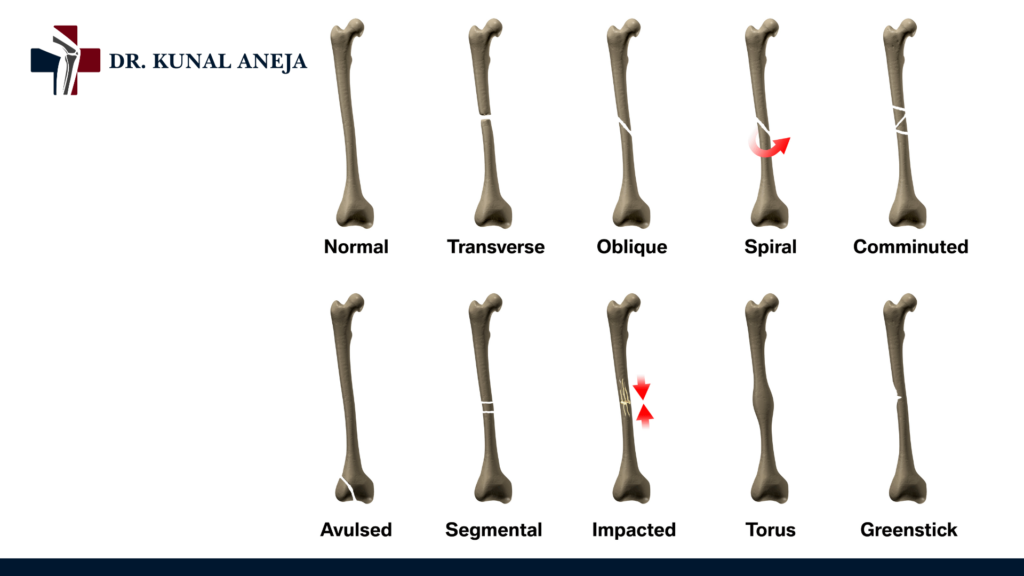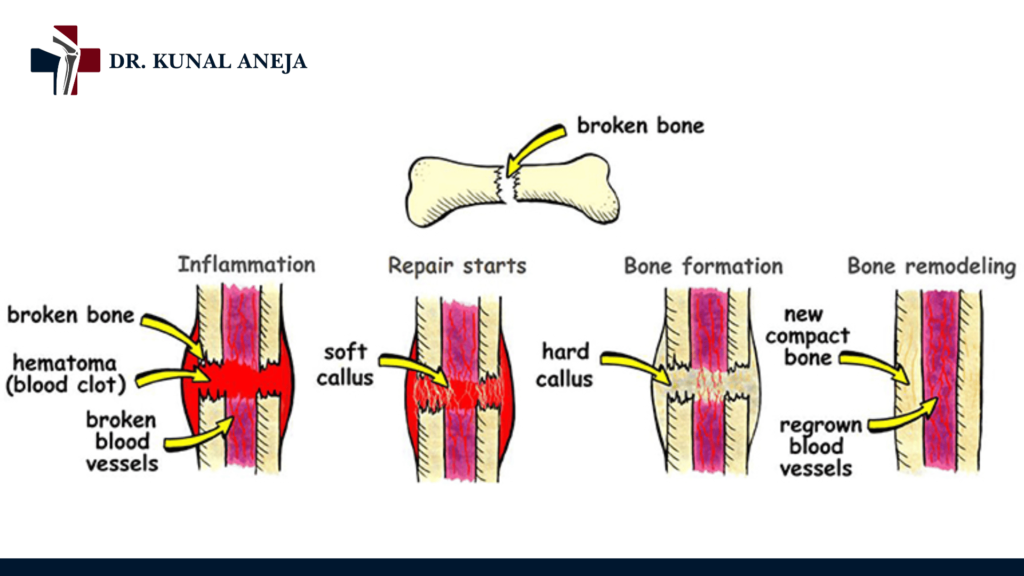Overview
Envision experiencing a chronic, bothersome ache in your joints upon awakening each morning. Drastic problems arise from simple actions like walking or climbing stairs. Despite your attempts at therapy, the soreness doesn’t go away. For many people with bone as well as joint problems, this is an all too typical scenario. To alleviate pain and regain movement, a knowledgeable Bone Doctor in Delhi may make a big impact. Let’s examine the importance of choosing a qualified bone expert and how they may make your life pain-free.
Why Should You See a Bone Doctor in Delhi?
Bone-related problems can vary in severity from small fractures to long-term diseases like osteoporosis. It is essential to consult a bone expert for several reasons:
- Accurate Diagnosis: Specialists are able to identify complex bone disorders that general practitioners may miss.
- Options for Advanced Therapy: They provide a variety of therapies, ranging from drugs to complex surgical procedures.
- Personalized Care: Every patient is given a customized treatment plan based on their individual requirements and state of health.
- Preventive Care: Bone physicians offer preventative care in addition to guidance on how to avoid bone problems.
Getting expert assistance if you have mobility problems or chronic pain can greatly enhance your quality of life.
What are the Common Conditions Treated by Bone Doctors in Delhi?
A wide range of conditions are addressed by Orthopaedic specialists, who are also known as bone physicians. Rheumatoid arthritis and osteoarthritis are examples of arthritis treatments.
- Breaks: Care for both fundamental and muddled cracks to advance proper arrangement and mending.
- Osteoporosis: Distinguishing and treating a reduction of bone mass to stay away from cracks. Treating joint torment, including those of the shoulders, hips, knees, and different joints.
- Management of strain fracture: Tendinitis, and ligament rips in sports injuries
- Disorders of the Spine: Dealing with conditions like spinal stenosis and herniated discs. Perceiving the signs and looking for brief administration are made simpler with a comprehension of these ailments.
How Do Bone Doctors Diagnose Bone and Joint Problems?
Treatment success depends on a precise diagnosis. A physical examination is a first look at the patient to learn about their health history and symptoms.
- Imaging Tests: MRIs, CT scans, and X-rays may all produce images of the bones and joints that are extremely detailed.
- Blood tests: Can help diagnose conditions like infections and arthritis. The Bone Density Test is used to determine fracture risk and identify osteoporosis.
- Joint liquid examination: Can be utilized to recognize gout or joint diseases. The bone specialist is able to create a precise treatment plan using these diagnostic tools.

What are the Latest Advances in Bone and Joint Treatments?
Therapies for bones and joints have been changed by propels in clinical innovation:
- Minimally Invasive Surgery: Procedures like arthroscopies require fewer incisions, which speeds up healing. Automated Helped A medical procedure: Increments exactness during joint substitution techniques, prompting improved results.
- Biologics: Therapies like stem cell therapy and platelet-rich plasma (PRP) encourage natural healing.
- Custom implants: When it comes to joint replacement procedures, custom implants ensure a better fit and a longer lifespan.
- Improved Recovery Methods: Making shorter hospital stays and speeding up the healing process a priority.
By staying up to date on these developments, patients can select the most effective treatment option.
How Can You Prevent Bone and Joint Problems?
It’s always preferable to prevent than to cure. Here are some tips for safeguarding your joints and bones:
- A well-balanced diet high in calcium and vitamin D helps to build stronger bones.
- Frequent Exercise: Strength training and weightlifting activities.
- Healthy Weight: Lessens strain on knees and other weight-bearing joints, such as the hips.
- Avoid drinking too much: alcohol and smoking since they both erode bone structure.
- Frequent check-ups: Early identification and handling of possible problems.
By following these suggestions, you can lower your risk of bone and joint issues considerably.
When Should You Consider Surgery for Bone and Joint Issues?
Typically, surgery is chosen when non-invasive treatments fail: Persistent pain is severe pain that persists despite treatment or medication.
- The inability to perform everyday activities: Because of weak or tight joints is known as limited mobility.
- Deformity: Notable changes in the joint structure that make it less useful.
- Bombed Past Medicines: When there could be at this point not any advantage from non-careful strategies.
You can conclude whether a medical procedure is the best strategy for you by talking with a bone specialist.
What Can You Expect During the Recovery from Bone Surgery?
Realistic expectations may be set by having an understanding of the rehabilitation process:
- Pain treatment and early mobilization: Are included in immediate post-operative care.
- One essential element In restoring strength and mobility is physical therapy.
- Follow-Up Appointments: Periodic visits to assess development and make necessary modifications.
- Lifestyle Adjustments: Modifying routines to lessen strain on the affected region.
- Long-Term Care: Ongoing supervision to stop problems from happening again.
- Being prepared helps: Reduce anxiety and increase adherence to recovery guidelines.
How to Choose the Best Bone Doctor in Delhi?
Choosing the correct bone specialist is essential to a successful course of treatment:
- Credentials and expertise: Verify the physician’s considerable expertise treating Orthopaedic conditions and board certification.
- Reviews from previous patients might provide light on a doctor’s abilities and bedside manner.
- Technological Expertise: Advanced care is provided by physicians who make use of the newest tools and procedures.
- Hospital affiliations: If you want access to first-rate facilities, look for physicians who are associated with reputable hospitals.
- Personal Comfort: Select a physician with whom you are at ease while discussing your issues.
Dr. Kunal Aneja is a great option for a bone specialist in Delhi since he possesses these attributes, which include triple board certification and substantial foreign training.
Why Dr. Kunal Aneja is the Best Bone Doctor in Delhi
Because of his outstanding credentials and commitment to patient care, Dr. Kunal Aneja is one of the Best Bone Doctors in Delhi. Dr. Aneja adds a lot of experience to his practice, having received advanced training from prominent institutes worldwide in robotic and navigation joint replacement as well as arthroscopic keyhole operations. He uses the most recent developments in medicine to provide individualized care and guarantee the best possible results for his patients. Dr. Aneja’s belief that “Life is movement, Movement is Life” demonstrates his dedication to assisting patients in regaining their mobility and enhancing their standard of living.

Conclusion
In summary, Dr. Kunal Aneja is the finest bone doctor in Delhi for complete bone and joint treatment because of his experience and patient-centered style of care.
FAQs
1. What credentials do a bone doctor need to possess?
Ans. Seek for ties with reputable hospitals, board certification, and a wealth of expertise treating orthopaedic conditions.
2. What is the usual length of recuperation following a bone surgery?
Ans. Depending on the type of operation, recovery times might vary, but they often span a few weeks to several months.
3. Do minimally invasive procedures perform better than more conventional procedures?
Ans. Although decreased pain and faster recovery are common outcomes of minimally invasive operations, the optimal course of action varies depending on the particular ailment.
4. How can osteoporosis be avoided, if at all possible?
Ans. Yes, with regular bone density tests, a healthy diet high in calcium and vitamin D, regular exercise, and avoiding tobacco and excessive drinking.
5. In the event that I have joint uneasiness, when would it be a good idea for me to counsel a bone specialist?
Ans. If rest and over-the-counter remedies don’t help your chronic pain, swelling, or mobility issues, it’s time to see a bone doctor. Are you ready to begin living without pain?

